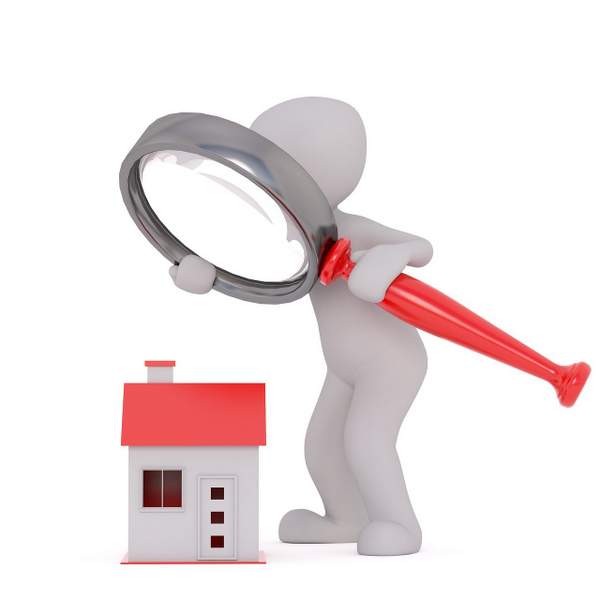Real Estate Valuation for Secured Lending Purposes
During the process of financing a real estate asset or the grant of a mortgage, a lender must be reassured that the amount they are advancing is in line with the value of the property in question. This reassurance is vital due to the potential risks of an incorrect estimation of value. As a result, banks and other financial institutions commonly require the input of a qualified and independent professional real estate valuer. They rely on this expertise when making their decision on whether and how much to lend.
If you are seeking to finance your real estate assets and have a requirement for a professional valuation from your lender, contact Samuel Thompson. He can provide an English-speaking introduction to the specialist services tailored to your personal situation. You can reach him via email ([email protected]) or telephone (+44 7933 239126 / +33 07 45 55 81 46).

Why are Valuations for Secured Lending Required by Lenders?
The process of valuing a property before acquisition is a necessary step forming part of the wider due diligence considerations. In this context, the role of a valuer is to ensure that the legal situation corresponds with the on-the-ground reality. The valuation and subsequent report produced will therefore reassure investors and lenders on factors such as:
- The nature of the legal ownership (freehold, long leasehold etc.).
- The presence of additional rights (e.g. servitudes, commercial leases).
- The general condition of the building and area measurements.
- Analysis of the useable parts, and those which are private/communal.
- The rental values of comparable properties in the locality.
- The Market Value of comparable properties on the market.
During the purchase of a property or re-financing an existing loan, the lender will often require a professional valuation from a qualified valuer in order to ensure that they are lending in a responsible manner. However, the valuation relied upon by the lender will generally differ to that which could be termed a basic market assessment and often be subject to a more cautious analysis.


What is the Difference Between a Lender’s Valuation and a Basic Market Assessment?
A lender’s valuation is above all an internal check, reflecting what the lender could reasonably expect to recoup if the borrower defaulted on their loan. In this scenario, possession returns to the lender. These valuations are generally conservative, ensuring that the lender does not lend an amount exceeding what they could recover from a property sale. The resulting figure usually corresponds to the Market Value (MV), defined by the International Valuation Standards Council (IVSC). This value represents the amount a property would exchange for on the open market during a commercial transaction.
On the other hand, a basic market assessment serves as a guide to estimate a property’s value if it were put up for sale. This valuation is often higher than a bank’s valuation, aiming to optimistically achieve the highest possible sale price.
In addition to the Market Value, lenders will often require an understanding of factors such as:
- The value to be insured (reinstatement cost analysis).
- Forced sale value (assuming a sale within a defined restricted period)
- The anticipated marketing period required to achieve a sale.
These are termed as ‘special assumptions’ which assume facts that differ from the actual facts existing at the valuation date, but are taken in to account by the lender in their decision making.
How are Valuations for Secured Lending Carried Out?
In the case of a valuation for secured lending purposes, the valuer is typically instructed directly by the lender from their panel of independent valuers. Banks and financial institutions require the valuer to be accredited with a recognized body, such as RICS (Royal Institution of Chartered Surveyors) or TEGoVA (The European Group of Valuers’ Associations). This accreditation ensures that the valuer is appropriately qualified and experienced for the task at hand.
Once engaged, the valuer will carry out a complete inspection including all internal and external elements. The valuation of the external parts will take in account the size and arrangement of any grounds, including potential for development. Internal considerations encompass, among others, the number of rooms, the layout, and the age and condition of the building. The valuer will then prepare and deliver a detailed valuation report to the lender, providing their reasoned opinion of Market Value for the property (including any special assumptions required by the lender). This report will then be used by the lender to ensure that the loan corresponds to the true value of the property and inform their lending decision.

Berthier & Associés boasts an experienced team of certified real estate valuers. They are affiliated with prestigious organizations such as RICS, TEGoVA, and IFEI (Institut Français de l’Expertise Immobilière). Our valuers have a proven track record of valuing diverse properties across France for secured lending purposes. For an English-speaking introduction to the services provided, contact Samuel Thompson. Via email at [email protected] or telephone +44 7933 239126 / +33 07 45 55 81 46.
